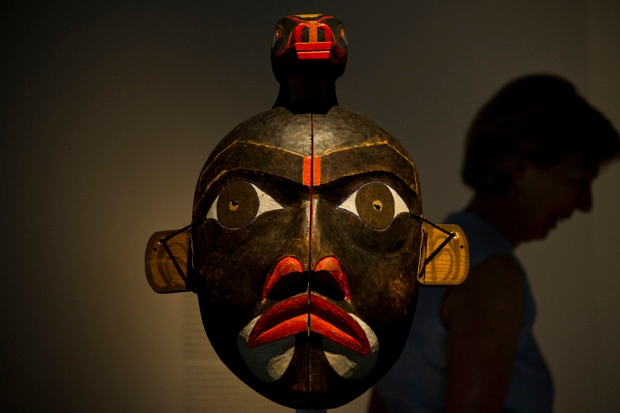Isis’s blowing up of the Roman theatre at Palmyra should concentrate our minds: our world heritage is vulnerable. Not that we should need any such reminder after the depredations of the Taleban in Afghanistan, or Isis’s earlier rampage through the museum in Mosul and its attacks on sites at Hatra and Nimrud.
A former director at the Institute of Ideas and a visiting fellow at the LSE, Tiffany Jenkins applies her considerable experience of cultural policy to construct an excellent survey that rehearses the issues. Who is responsible for the great examples of our shared heritage? Where should they be located: where they originated; where they have ended up; or where they can best be looked after, seen and understood?
Notwithstanding her title, she casts her eye considerably further than the Elgin Marbles: on the Benin bronzes; the Dendera zodiac relief from Hathor; the south Dakota ghost shirt; the Polynesian feather helmets — or mahioles — that Captain Cook brought back; the Kwakiutl masks and regalia; and other artefacts and human remains that originate with indigenous peoples. That very phrase raises difficult questions. Who exactly are ‘indigenous peoples’, and who is in a position to decide? Ultimately, the question she explores is: who owns culture?
The 1970 Unesco convention — which aims to combat the ‘illicit import, export, and transfer of ownership of cultural property’ — provides some guidance. Turkey is a signatory, and is laying claim to a number of ancient Mediterranean antiquities: Its former minister of culture, Ertugrul Günay, believes that ‘each and every antiquity in any part of the world should eventually go back to its homeland’.
It is a view shared widely by historians, journalists and many national governments (a former Peruvian president, for instance, has said that the return of artefacts excavated by the American explorer Hiram Bingham, would ‘strengthen Peru’s national pride and self-respect’) as well as, in theory, Unesco itself. But the convention doesn’t apply to works bought or sold before 1970. Much turns in practice on whether a museum, or a country, has artefacts that could be exchanged.
Tiffany Jenkins understands that these are not simple questions: artefacts have long and complex histories. As she points out, many of these governments did not exist in the past: what is now Turkey was Anatolia, and Istanbul/Constantinople has been trampled over by a succession of cultures: Hittite, Greek, Roman, Byzantine, Ottoman. She is in sympathy with the historian Kwame Anthony Appiah, who asked: ‘What does it mean, exactly, for something to belong to a people?’
Turning to the role of museums, Jenkins recognises the guilt and insecurity that is reflected in the thinking of their staff. But she queries whether restitution, in practice, will achieve the social change that campaigners desire, or will atone for past actions and wounds.
She argues that these are not simple choices between museums and aggrieved campaigners; and that artefacts should not be the ground on which political grievances about imperialism or colonisation should be revisited. She insists that museums themselves are most authoritative in resolving questions of where artefacts can best ‘speak’ to scholars.
Neil MacGregor has argued precisely this throughout his time at the British Museum, when he resisted pleas from Greece to return the Parthenon Marbles. Jenkins proves to be an intelligent and articulate ally. Her level-headed and balanced book — which not only considers the role of museums in shaping our historical understanding, but notes the way museums are being transformed by an outstanding generation of contemporary architects — is a valuable contribution to the international debate, and will enrich audiences and scholars for a long time to come.






Comments